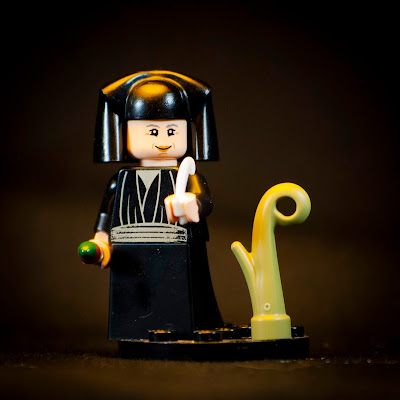St. Lawrence
St. Lawrence is one of the most well-known deacon saints, notably for his method of martyrdom (being burned alive on a gridiron), and for the waterway bearing in name in the US and Canada. The Gulf of St. Lawrence was so named because the French explorer Jacques Cartier first arrived there on St. Lawrence's feast day in 1535.
Region: Rome
Patronages: Comedians; Firefighters; Librarians
Iconograpy: Gridiron; Deacon robes; Censer
Feast Day: August 10
The Roman prefect did not appreciate the deceit, however. When he asked Lawrence for the church's treasure, Lawrence brought the poor people in the church (the same to whom he had secretly given the riches), and said:
"Behold in these poor persons the treasures which I promised to show you; to which I will add pearls and precious stones, those widows and consecrated virgins, which are the Church's crown."
The prefect was irate, and assigned Lawrence a much more painful death than Sixtus and the other deacons had received: he would be roasted alive on a gridiron.
Lawrence's faith sustained him through even this torture, though. After a period of agonizing torture, Lawrence joked:
"I'm well done on this side. Turn me over!"
For his quick thinking in protecting the church's tomes and treasures, St. Lawrence is the patron saint of librarians and archivists. For his jovial humor even in the midst of a horrific death, he is the patron saint of comedians. And because the church herself is not without humor, he is also the patron saint of cooks and firefighters.






